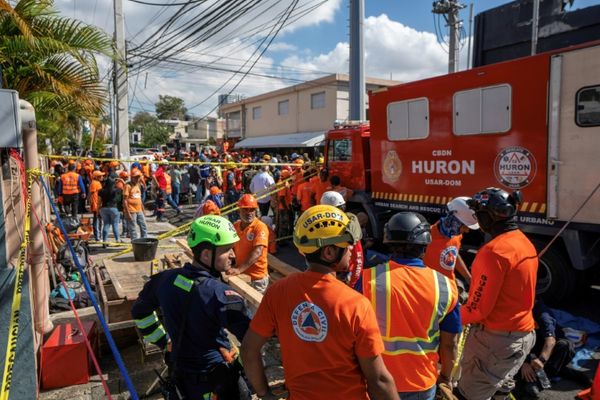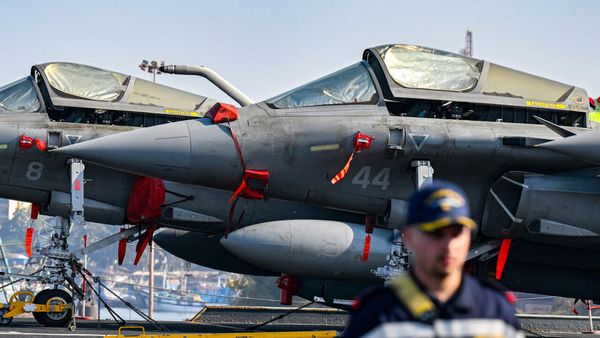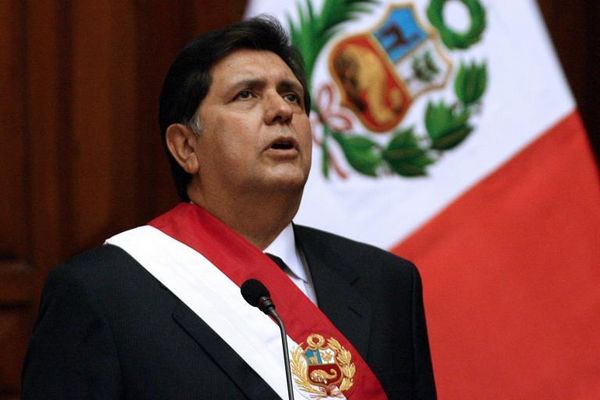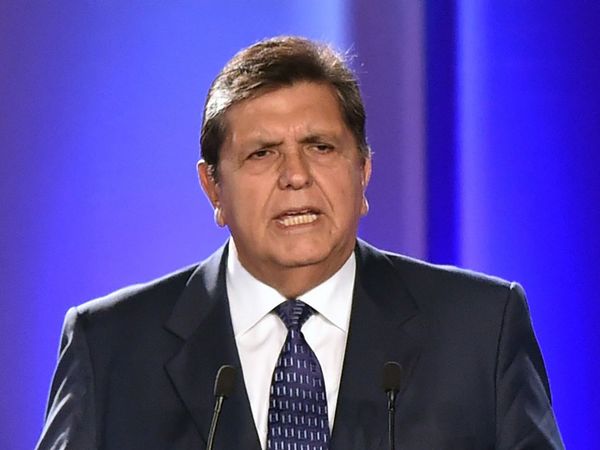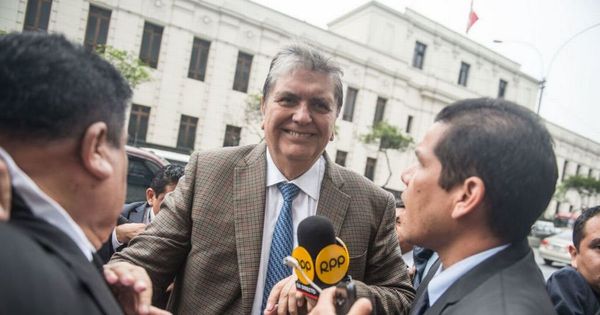
Peru’s former president Alan García has died after deliberately shooting himself in the head when police tried to arrest him in connection with a multibillion-dollar Latin American corruption scandal.
“I am saddened by the death of former president Alan García,” tweeted the country’s current president, Martín Vizcarra, confirming the news. “I send my condolences to his family and loved ones.”
Earlier, García’s lawyer, Erasmo Reyna, told local media his client “took the decision to shoot himself” early on Wednesday after officers arrived at his home in the capital, Lima, to place him under preventive detention.
Peru’s interior minister, Carlos Morán, told journalists García had told police officers he was going to call his lawyer and had “shut himself in his bedroom” before a shot was heard.
The 69-year-old politician – who faced accusations of taking bribes from the Brazilian construction giant Odebrecht during his 2006-2011 presidency – was admitted to a nearby hospital soon after, at about 6.45am, suffering from a gunshot wound to the head.
Before his death was confirmed Peru’s health minister, Zulema Tomás, told reporters García was in a “very serious” condition and had suffered three heart attacks from which he had been resuscitated. A 27-strong medical team, including neurosurgeons and intensive care specialists, was fighting to save the former president’s life.
“This is a day of national grief,” Alberto Quintanilla, a leftwing congressman, told local television after confirmation of García’s death.
“Peru is in mourning. Our political system is mourning and we … express solidarity with the family … What has happened is very regrettable.”
García is one of four former Peruvian presidents to be sucked into the vast Odebrecht scandal – by which multimillion-dollar bribes were paid to secure construction contracts across the region – alongside Pedro Pablo Kuczynski, Ollanta Humala and Alejandro Toledo.
Last week, a judge ordered that Kuczynski be placed under preventive custody for 10 days as part of a money-laundering investigation. Known as PPK, Kuczynski led Peru from 2016 until he resigned last March before a congressional move to impeach him over links to Odebrecht.
García served two terms as president – from 1985 to 1990 and then 2006 and 2011 – and is one of Peru’s most prominent politicians. He rejected claims of wrongdoing, painting himself as the victim of political persecution. Last year he unsuccessfully requested political asylum in Uruguay after seeking shelter in its embassy in Lima.
“I have never sold myself and this has been demonstrated,” García tweeted on Tuesday.
The attempt to arrest García came just days after an investigation revealed his personal secretary, Luis Nava, had allegedly received $4m from Odebrecht’s off-the-books bribery department.
In an interview on Tuesday García said he “emphatically” rejected the accusations against him which he described as “speculations” and “moral assassination”.
Political allies from García’s once-powerful party, Apra, expressed shock and outrage at his dramatic death.
“At this moment of profound pain we must reaffirm our unity and our brotherhood,” tweeted congressman Jorge del Castillo, calling on supporters to gather outside the party’s headquarters on Wednesday night.
Another ally, Mauricio Mulder, described García’s decision to take his own life as “an honorable act” taken in response to the “fascist persecution” of political foes.
“President García has taken the decision of a free man,” to avoid humiliation by those intent on using him as a political “trophy”, Mulder said.
Ecuador’s former president Rafael Correa tweeted: “His suicide is, in reality, a murder … May his sacrifice help us understand that there must be limits to political struggle.”
García went into politics in the 1970s – after a period studying in Paris, where he is said to have supported himself by busking outside metro stations – and has been a towering figure in Peruvian politics ever since.
His first term as president is widely remembered as a fiasco, ending in economic meltdown and a deadly security crisis involving the Maoist guerrilla group Shining Path.
But García staged a dramatic political comeback in 2006, which some attributed partly to his rival’s endorsement by Venezuela’s then leftist leader Hugo Chávez.
In the UK, Samaritans can be contacted on 116 123. In the US, the National Suicide Prevention Lifeline is 1-800-273-8255. In Australia, the crisis support service Lifeline is 13 11 14. Other international suicide helplines can be found at befrienders.org
